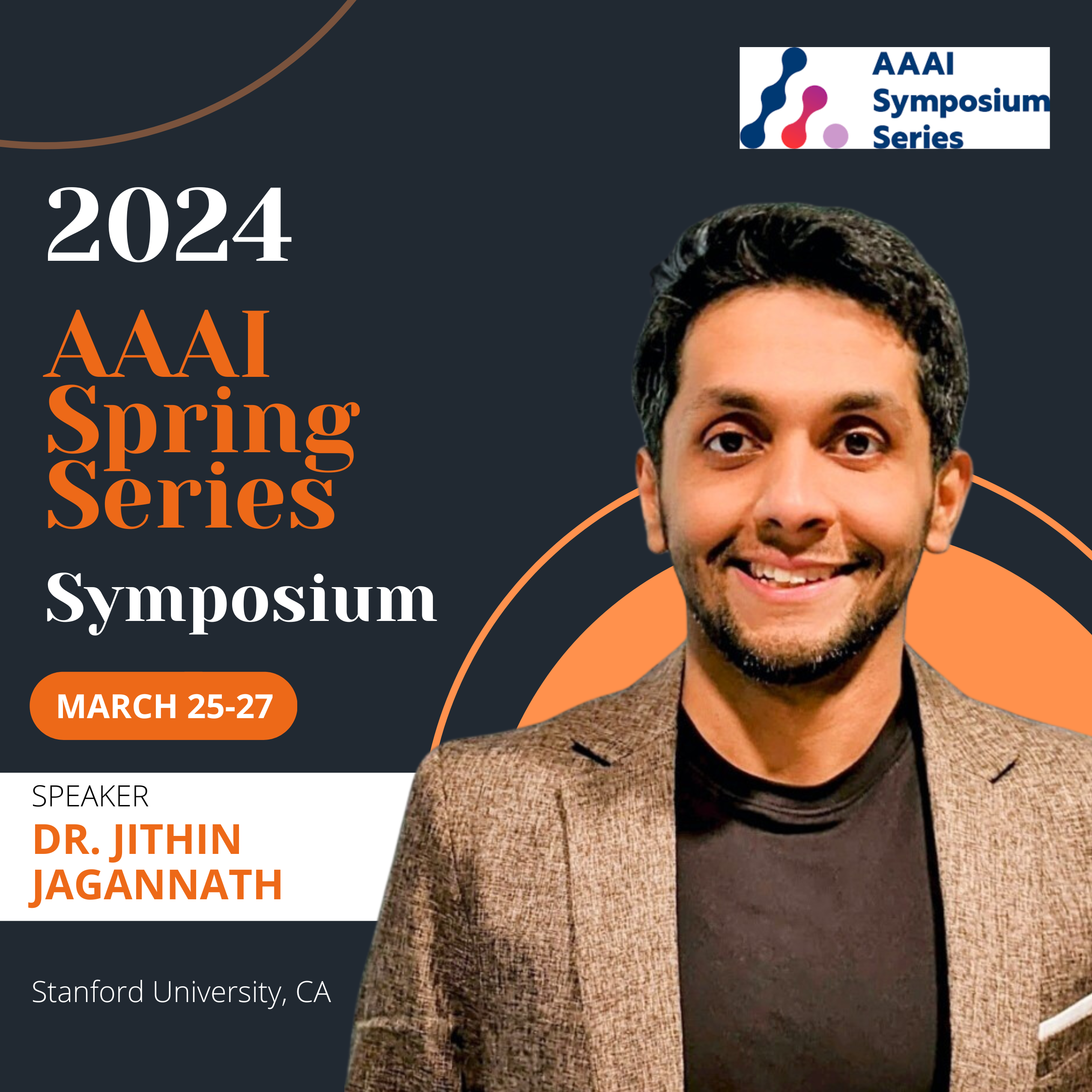Dr. Jithin Jagannath, Founding Director of ANDRO’s Marconi-Rosenblatt AI Innovation Lab, has been invited to speak at the 2024 AAAI Spring Series Symposium, highlighting Federated Learning on the Edge. The symposium will take place March 25-27, 2024 at Stanford University.
Computational intelligence bears the prospect of a trendsetting technology able to unlock solutions to previously difficult and large-scale problems outside of the current cloud-centric paradigm. In the following decades, intelligent agents trained in the cloud using machine learning algorithms on large amounts of data will be deployed in the real world. Under the requirements of dynamic applications, AI agents sharing a common goal will be designed on the fly. Therefore, real-time interactions between AI agents will be necessary to solve complex distributed problems where massive connectivity, large data volumes, and ultra-low latency are beyond those offered by 5G networks and beyond. To harness the true power of such agents, Federated Learning on the Edge is the key.
Federated Learning (FL) has recently emerged as a standard distributed machine learning computational paradigm to meet these needs by enabling coordination and cooperation among such agents on the Edge. FL was initially proposed for text recommendation on mobile phones to improve the communication efficiency of devices, i.e., by not sending their data to a central repository. However, FL has witnessed vast applicability across many disciplines, especially in healthcare, finance, and manufacturing. Since FL allows data to remain at the source, sources only need to share their locally trained model parameters. By preserving data locality, FL can reduce the data security and privacy risks associated with aggregating data in a single location.
Through this symposium, they will create a collaborative platform to address open issues frequently observed in FL on the Edge. Edge devices in a FL environment may experience computational power, memory capacity, and/or communication bandwidth limitations. Participating devices may have heterogeneous hardware equipment or be powered by small-capacity batteries, leading to network disconnections and packet drops. These challenges require novel algorithmic approaches and system solutions that can facilitate the deployment of FL in such resource-constrained computational environments. Considering the resource-intensive requirements of developing different security and privacy protocols on edge, providing solutions from a theoretical and practical point of view makes these challenges particularly attractive.
View the full lineup of guest speakers here: Federated Learning on the Edge – Speakers (google.com)

